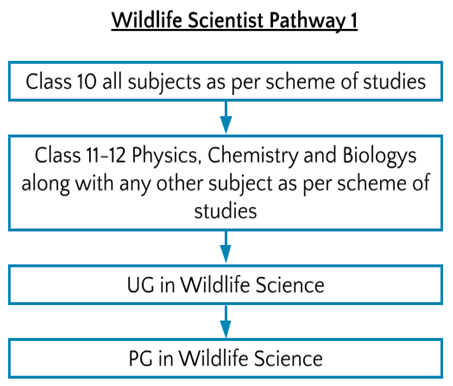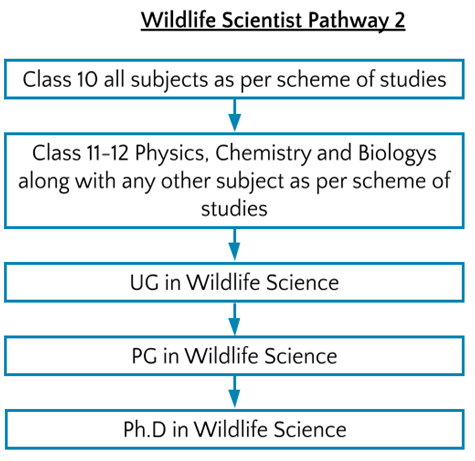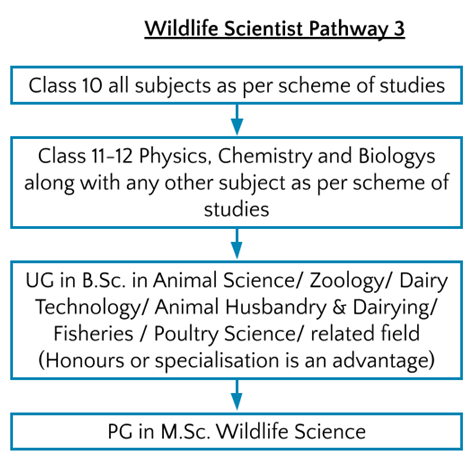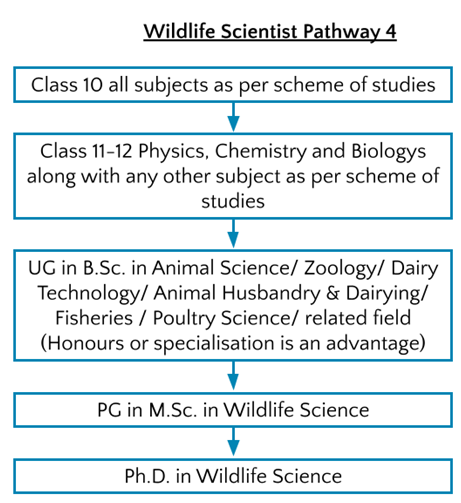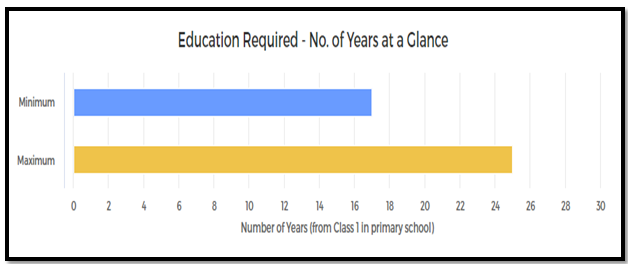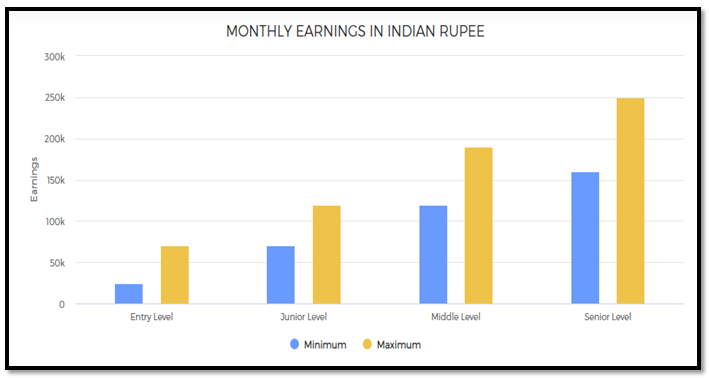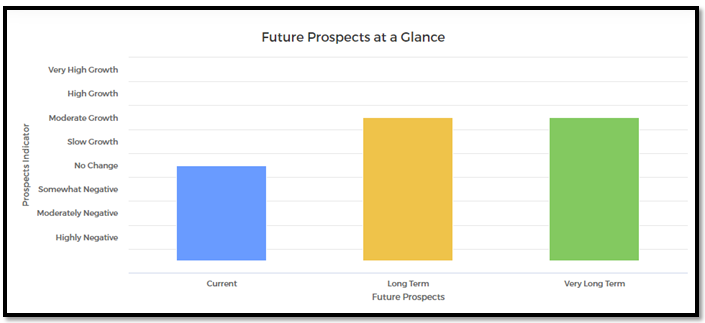Wildlife Scientist
Entry Level Qualification
Graduate
Career Fields
Mathematics & Science
For Specially Abled




About Career
PARTICULARS | DESCRIPTION |
Name | Wildlife Scientist |
Purpose | Research and Start Different Breeding Programmes |
Career Field | Mathematics & Science |
Required Entrance Exam | No Entrance Exam |
Average Salary | 300000 - 500000 Rs. Per Year |
Companies For You | Indian Forest Services and State Forest Services, Wildlife Scientist & Many More |
Who is Eligible | Post Graduate |
Wildlife Scientists are the scientist who studies wild animals and their habitats. A wildlife scientist performs different kinds of scientific tests and experiments on wildlife. For example, they take blood samples from animals to assess their nutrition levels, check animals for disease and parasites, and tag animals in order to track them. Although it may seem that zoologists and wildlife scientists have a similar profile, they still do differ. A Zoologist specifically studies and conducts scientific research and experiments for a particular type of animals, like a bird, amphibian, mammal, etc. However, a wildlife scientist will study a specific will ecosystem or animal population especially species at risk like Lions in Gir or Tigers in Bengal. Wildlife scientist also works beyond studies and experiments such as conservation of wildlife population, etc.
Another aspect of a wildlife scientist is working on estimating wildlife population and tracking the movement of animals. As a wildlife scientist, you will use geographic information systems (GIS), modelling software, and other computer programs to carry such roles. You will also use technology and computer systems to forecast the spread of any invasive species and diseases in the population, project changes in the habitat and find any potential threat to the wildlife.
Key roles and responsibilities
As a Wildlife Scientist, depending on your field of specialisation, you would have the following roles and responsibilities:
1. You will develop and conduct experimental studies on animals living in wild jungles or controlled environment.
2. You will collect all kinds of biological data for your research and studies.
3. You will study the characteristics of animals like how they interact with other animals, their reproduction cycles, population dynamics, diseases, movement patterns, etc.
4. You will study the impact of human life and activities on wildlife and their natural habitat. Thus, you will also develop and implement plans to reduce the risk of loss of life of wildlife animals and species from different human development projects like airport, dams, etc. construction.
5. You will research and start different breeding programmes to support healthy animals’ genes endangered species, etc.
6. You will work to estimate the population of wildlife in particular jungle, sanctuary or national park through different means like pug mark, GIS and radio collar, etc.
7. You will write a research paper for your studies and share your knowledge with other scientists, public, government, industry, etc. through journals, books, etc.
8. You will check for compliance with all environmental laws by different private and public agencies. You will notify law enforcement bodies if any such violation is discovered.
9. You will study animals live in a natural habitat close to industrial units. You will assess the effect of industries on wildlife and their habitat and interpret the findings to recommend solutions to industries including alternative operations.
10. You would work in all sort of regions including high altitude regions like Great Himalayan National Park or Sikkim Himalayan region.
11. You will research different fields like dietary analysis, molecular genetics studies, etc.
12. You will do field surveys to study the ecological impact on animals.
Career Entry Pathway
Class 10 all subjects as per scheme of studies– Class 11-12 Physics, Chemistry and Biologys along with any other subject as per scheme of studies – UG in Wildlife Science – PG in Wildlife Science
After Class 11-12 Physics, Chemistry and Biology along with any other subject as per scheme of studies, then study for an undergraduate degree in Wildlife Science followed by a master’s degree in Wildlife Science.
Class 10 all subjects as per scheme of studies– Class 11-12 Physics, Chemistry and Biologys along with any other subject as per scheme of studies – UG in Wildlife Science – PG in Wildlife Science – PhD in Wildlife Science
After Class 11-12 Physics, Chemistry and Biology along with any other subject as per scheme of studies, then study for an undergraduate degree in Wildlife Science followed by a master’s degree in Wildlife Science. After a Master’s Degree, you can take a PhD in Wildlife Science.
Class 10 all subjects as per scheme of studies– Class 11-12 Physics, Chemistry and Biologys along with any other subject as per scheme of studies – UG in B.Sc. in Animal Science/ Zoology/ Dairy Technology/ Animal Husbandry & Dairying/ Fisheries / Poultry Science/ related field (Honours or specialisation is an advantage) – PG in M.Sc. Wildlife Science.
After Class 11-12 Physics, Chemistry and Biology along with any other subject as per scheme of studies, then study for an undergraduate science degree in Animal Science/ Zoology/ Dairy Technology/ Animal Husbandry & Dairying/ Fisheries / Poultry Science/ related field (Honours or specialisation is an advantage) followed by a master’s degree in Science stream in Wildlife Science.
Class 10 all subjects as per scheme of studies– Class 11-12 Physics, Chemistry and Biologys along with any other subject as per scheme of studies – UG in B.Sc. in Animal Science/ Zoology/ Dairy Technology/ Animal Husbandry & Dairying/ Fisheries / Poultry Science/ related field (Honours or specialisation is an advantage) – PG in M.Sc. in Wildlife Science – Ph.D. in Wildlife Science
After Class 11-12 Physics, Chemistry and Biology along with any other subject as per scheme of studies, then study for an undergraduate science degree in Animal Science/ Zoology/ Dairy Technology/ Animal Husbandry & Dairying/ Fisheries / Poultry Science/ related field (Honours or specialisation is an advantage) followed by a master’s degree in Science stream in Wildlife Science. After the Master’s course, you can pursue a Ph.D. in Wildlife Science.
Required Qualification & Competencies
Undergraduate studies after school
1. To become a wildlife scientist, you should complete your schooling with Biology, Chemistry and Physics and join for an undergraduate course of Bachelor of Science Wildlife Science.
2. Alternatively, you can also study Science/ Zoology/ Botany/ Anthropology/ Veterinary/ Environmental Science/ Forestry/ Agriculture/ Geography/ Natural Resources/ Microbiology/ Ecology / similar field.
Post Graduate studies
After finishing graduation, you can take a post-graduation course in the various specialization of wildlife science like Wildlife biology, Wildlife Ecology & Conservation, Wildlife Ecology, Wildlife Management, Nano Wildlife.
Doctoral Studies
The Wildlife Scientist is a specialised scientist, and thus research becomes an important part of the pathway. Thus, after completing Post Graduate Studies, you can choose to take a PhD in Wildlife Biology, Wildlife Ecology & Conservation, Wildlife Ecology, Wildlife Management, Nano Wildlife.
Compentencies Required
You should have the following occupational interests:
1. Investigative: You should have interests for Investigative Occupations. Investigative occupations involve working with ideas and quite a lot of thinking, often abstract or conceptual thinking. These involve learning about facts and figures; involve the use of data analysis, assessment of situations, decision making and problem-solving.
2. Realistic: You should have interests for Realistic Occupations. Realistic occupations involve more practical and hands-on activities than paperwork or office work. Realistic occupations often involve physical activities for getting things done using various tools and equipment.
Following personality attributes are required:
1. You are always or mostly organised in your day-to-day life and activities.
2. You are always or mostly disciplined in your action and behaviour.
3. You are always practical or in most situations.
4. You are always or mostly care about your actions and behaviour.
You should have the following skills and knowledge:
1. Reading Comprehension: Skills in understanding written sentences and paragraphs in work related documents.
2. Critical Thinking: Skills in the analysis of complex situations, using logic and reasoning to understand the situations and take appropriate actions or make interpretations and inferences.
3. Active Listening: Giving full attention to what other people are saying, understanding the points being made by others, asking questions, etc.
4. Scientific: Skills in using various scientific rules and methods to get things done or solve problems.
5. Biological Science: Knowledge of plants and animals, their anatomical structure, cell structure, tissues, physiological functions, evolution, and all other related aspects.
6. Law: Knowledge of laws, legal codes, legal procedures, regulations, Government orders, etc.
You should have the following aptitudes and abilities:
1. Oral Comprehension - The ability to listen to and understand information and ideas presented through spoken words and sentences.
2. Inductive Reasoning - The ability to combine pieces of information from various sources, concepts, and theories to form general rules or conclusions. For example, analysing various events or situations to come out with a set of rules or conclusions.
3. Oral Expression - The ability to communicate information and ideas in speaking so others will understand.
4. Deductive Reasoning - The ability to apply general rules and common logic to specific problems to produce answers that are logical and make sense. For example, understanding the reasons behind an event or a situation using general rules and common logic.
5. Written Comprehension - The ability to read and understand information and ideas presented in writing.
Career - Job Opportunities & Profiles
1. Most of the universities and college will hire you as a professor at the position of Junior Professor or Assistant Professor. If you are into research, then you will be hired at the position of research associate. PhD research fellows will be hired as a Junior Research Fellow.
2. Research laboratories and Research Institutes will hire you as a scientist/scientist officer with the lowest grade (Grade C).
3. Wildlife Scientist with private organizations and NGOs into wildlife research, wildlife conservation, etc.
4. Indian Forest Services and State Forest Services.
Work Environment
As a Wildlife Scientist, most of you will be working in jungles, sanctuaries, national parks for research, studies, tracking animals, headcount, etc. This means that most of your time, you will have to go through difficult terrain, inhospitable regions, dangerous forest, etc. You will be required to work overnight or early morning sometimes. It will be quite normal sometimes to sit at one place to observe animals in the wild. Thus, your work environment will be challenging most of the times. However, sometimes, you will be working at the research institute completing your work and research and this will be normal 8-9 hours work with a relaxing work environment.
Specialisation Tracks In This Career
Wildlife Biologist
Wildlife Biologist is a specialist who studies animals in their natural habitat. A wildlife biologist mostly works to studies how animals in wild survive, what they eat, etc. They study about the life cycle of wild animals, relation to other animals from different species and their evolution and changes.
Wildlife Conservation Scientist
Wildlife Conservation Scientist is a specialist who works for the conservation of wildlife. A wildlife conservation scientist identifies animals under existential threat and works to tracks these wild animals through footprints or GIS or collar radios. They will install collar radios to keep a track of animals tracking and illegal killing. They also do scientific research and studies to find reasons for endangering of several species.
Wildlife Ecologist
Wildlife ecologist is a specialise who work on identifying the relationship between wildlife animals and plants and their ecology. Ecology is the science of studying animals and their environment. Most of the wildlife ecologist performance researches to understand the balance between humans, environment and wildlife.
Wildlife Management Expert
Wildlife Management Experts are the specialist who creates an understanding between the needs of the human population and wildlife population. Most of the wildlife management experts work to conserve wildlife in the regions where humans are growing in size and encroaching the wildlife habitat.
Career Growth
1. The career growth in university and college states from Assistant Professor and then Associate Professor, Professor and Professor Emeritus. Professors can also get administrative positions such as Director/Dean/Vice Chancellor, etc.
2. If you are hired as a research associate (JRF and SRF), then you will go on to become a Doctoral Research Fellow, then Post-Doctoral Research Fellow and then Scientist in Progressive Grades.
3. Research laboratories will hire you as a scientist/scientist officer with the lowest grade and the grade changes from low to high. In India, grades are “Scientist “C” as the joining level and then D, E, F, G, H, etc. A senior-level scientist can also get into administrative positions like Principal Scientist, Assistant Director, Deputy Director, Director, etc
4. As an officer with Forest Service, you will start as a Probationary officer with State Governments and then become Deputy Conservator of Forests, Conservator of Forests, Chief Conservator of Forests, Additional Principal Chief Conservator of Forests and finally Principal Chief conservator of forests,
5. As an officer with forest service (Indian Government), you will start as Assistant Inspector General of Forests, then become Deputy Inspector General of Forests, Inspector General of Forests, Additional Director General of Forests and then Director General of forests.
Salary Offered
1. At the entry level, you can join as a research associate with a basic salary of Rs. 25,000 to 30,000. As a doctoral research fellow (junior research fellow) you would be earning around Rs. 35,000 to 38,000 per month. At the entry level, as a Scientist (grade C) you would be earning around Rs. 80,000 to 100,000 per month. As an assistant professor, you would be earning anything between Rs. 65,000 to 70,000 per month. As a scientist in private companies, you will earn anything between Rs. 25,000 to 1,00,000 per month.
2. At the junior level with a work experience of 2-6 years, you would be earning anything between Rs. 70,000 to 1,40,000 per month.
3. At the middle level with an experience of 10-12 years, you would be earning anything between Rs. 1,40,000 to 1,90,000 per month as a scientist and Rs. 1,20,000 INR to 1,60,000 as a professor.
4. At the senior level of over 15 years of work experience, you would be earning anything between Rs. 1,60,000 to 2,00,000 per month as a professor and Rs. 2,10,000 to 2,50,000 per month as a Scientist.
If you are working for the Indian Forest Services and State Forest Services in Forest Department, then you will be earning based on the following:
1. You will start your career as a Probationary Officer or Assistant Inspector General of Forest and earn anything between Rs. 56,000 to 1,77,000 per month.
2. After 2-6 years of work experience, you will be earning anything between Rs. 78,000 to 2,09,200 per month.
3. After working for 6-12 years, you will be working anything between Rs. 1,42,200 to 2,18,200 per month.
4. At the senior level of over 15 years of work experience, you will be earning anything between Rs. 2,05,400 to Rs. 2,24,400 per month.
Monthly Earnings In Indian Rupee
1. Entry level: 0 - 2 years of work experience
2. Junior Level: From 1 to 12 years of work experience
3. Mid-Level: From 5 to 20+ years of work experience
4. Senior Level: From 10 to 25+ years of work experience (there could be exceptions in some high-end technical, financial, engineering, creative, management, sports, and other careers; also in the near future, people will reach these levels much faster in many careers and in some careers, these levels will have no meaning as those careers will be completely tech skill driven such as even now, there is almost no level in a Cyber Security Expert’s job)
Work Activities
As a Wildlife Scientist, you might be involved in various applied and theocratical areas of Biology. In these areas, you might be involved in different activities such as:
1. Information processing: Searching, compiling, tabulating, calculating, auditing, verifying or otherwise dealing with information processing including data entry, transcription, recording, storing and maintaining databases.
2. Updating & using relevant information: Keeping updated with the latest knowledge relevant to your fields of work and use of the relevant knowledge in getting things done.
3. Getting information & learning: Observing, hearing, reading, using computers, or otherwise obtaining information and learning from it.
4. Communication with co-workers: Communicating with people in writing, verbally or otherwise inside your workplace and various other people who have professional relationships with your place of work including vendors, government officials, etc. or with people at large.
Future Prospects
India is one of the most bio-diverse nations in the world. India is home of Asiatic Lions, Bengal Tigers, Asian Elephants, Indian Leopards, Snow Leopards, the Great Indian Rhinoceros, different species of Deer, etc. India is one of the 16 megadiverse nations with a home to over 60-70% of biodiversity. Around 7.6% mammals, 12.6% birds, 6.2% reptiles and 6% of flowering plants can be found in over 120 national parks, 16 bio-reserves and 500+ wildlife sanctuaries. With such a large number of protected forests, wild animals, etc. India is open to wildlife scientist. With more conservation efforts coming up, India is likely to offer new jobs and opportunists to wildlife scientist.
Future Prospects At a Glance


